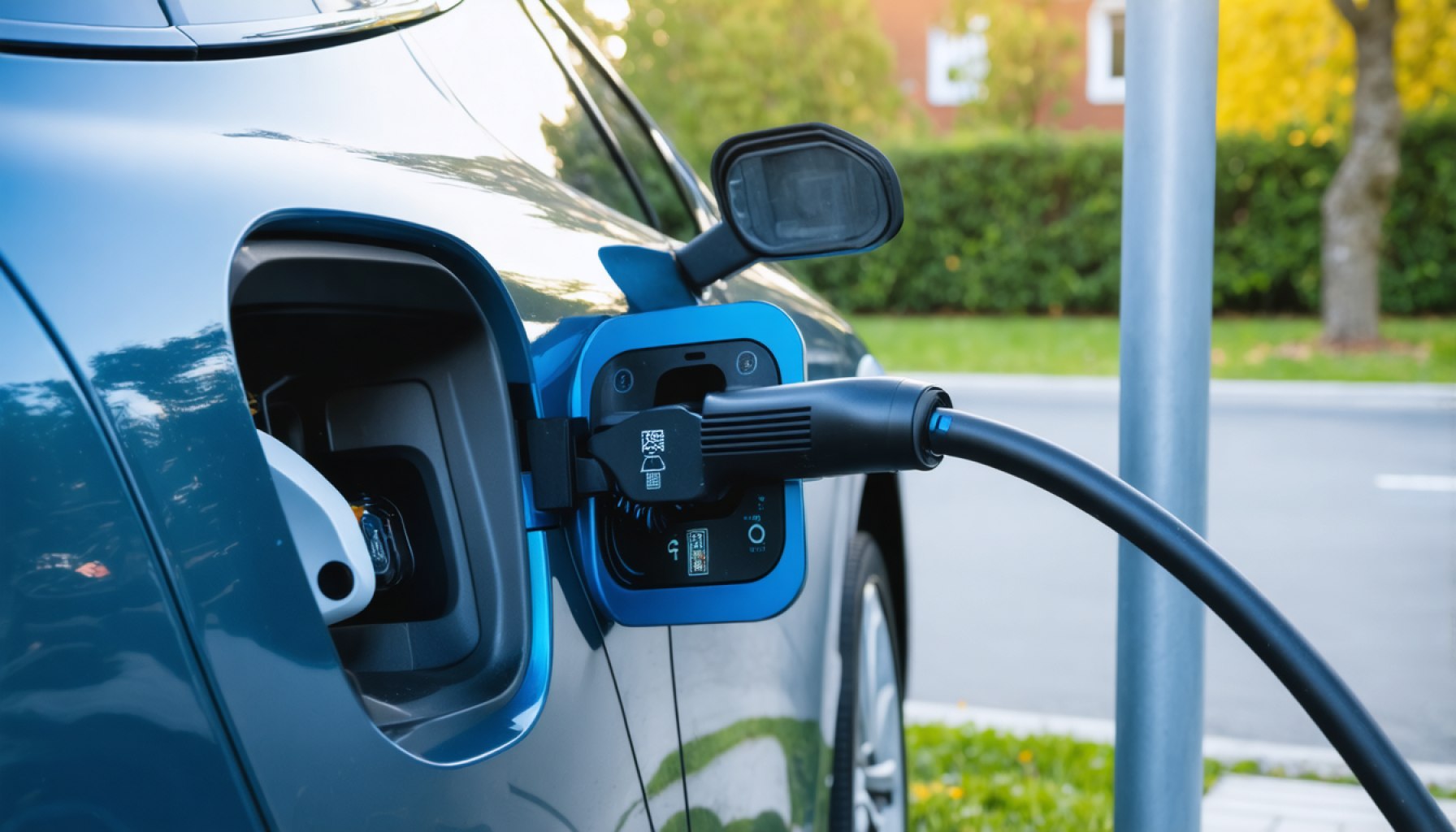- REXEV, a Tokyo-based company, is leading a shift towards smart EV charging, revolutionizing cost management for electric vehicles.
- The smart charging system times EV charging to align with low electricity market prices, reducing costs by approximately 20%.
- REXEV’s chargers synchronize with the Japan Electric Power Exchange (JEPX), optimizing energy use based on fluctuating market rates.
- Beyond cost savings, smart charging enables businesses to focus on core activities, enhancing operational efficiency.
- The broad implementation of smart charging can smooth energy demand across the grid, supporting sustainability efforts.
- Effective energy management is crucial for widespread EV adoption, positioning smart charging as essential for a sustainable future.
As the shimmering electric vehicles (EVs) glide down the bustling streets of Tokyo, a silent revolution hums beneath their hoods. The traditional gasoline guzzler is making way for an era where electrons power our journeys. Yet, amidst this transition, the financial nuances of EV charging threaten to throw a wrench in the works. Enter an innovative shift led by REXEV, a Tokyo-based company that’s steering this transformation with a smart solution.
Picture this: your EV, plugged in overnight, strategizing its charge just as a seasoned stockbroker would time the market. REXEV’s pioneering smart charging system harnesses the power of fluctuating electricity market prices, ensuring that your car charges during the most cost-effective moments. By orchestrating charging sessions when rates dip, the system slashes the charging costs by a striking 20%.
This intelligent approach not only trims the fat on operational costs but does so effortlessly, liberating EV users from the mental math of energy prices. Companies capitalizing on this smart charging don’t just enjoy savings—they reclaim time and peace of mind, focusing on their core missions while their EV fleets optimize themselves.
The secret sauce lies in REXEV’s smart chargers, synchronized with the Japan Electric Power Exchange (JEPX). Much like daylight shadows stretch and contract, market rates dance every 30 minutes, reshaping the landscape of affordable energy. The clever choreography crafted by REXEV allows EVs to tap into these moments of low demand, therefore low cost, mirroring how solar panels sip excess energy when the sun is high, nudging those electric zeros downwards even further.
What does this mean for the future of EVs? Beyond the prose of cleaner air and innovation lies a hard economic truth: effective management of running costs is the linchpin in the battle for widespread EV adoption. Strategic energy use doesn’t just invite savings; it beckons a sustainable revolution critical for businesses and the planet alike.
By expanding this smart charging framework to retailers, REXEV aims to weave a broader network that could redistribute energy demand more evenly across the grid, ultimately powering future EV users towards greater sustainability and cost-efficiency.
For businesses eager to leap into this green panorama, the pathway is clearly lit with innovative services from REXEV, ready to transform electric dreams into tangible, everyday reality. As the world inches closer to a sustainable future, smart charging stands poised as a vanguard of change—ensuring electrifying success, one charge at a time.
Unlocking the Future of Smart EV Charging: A Deep Dive into REXEV’s Game-Changing Innovation
Exploring the Economic Implications of Smart EV Charging
As electric vehicles (EVs) gain popularity across global markets, innovations like smart charging systems present transformative opportunities. REXEV, a forward-thinking company based in Tokyo, is at the forefront of revolutionizing this space. Their state-of-the-art smart charging system capitalizes on fluctuating electricity prices to reduce costs for EV users significantly. Here’s a comprehensive exploration of this promising technology, its real-world applications, market predictions, and potential challenges.
How Smart Charging Works
Smart charging relies on real-time data from electricity markets like the Japan Electric Power Exchange (JEPX) to determine optimal charging times. This technology adjusts charging sessions according to market price variations that occur every 30 minutes. By doing so, it minimizes charging costs by a remarkable 20%, as EVs charge primarily during periods of low electricity demand and pricing.
Real-World Use Cases
1. Corporate Fleets: Many businesses with large EV fleets can leverage smart charging to reduce operational expenses significantly. Besides, it offers a hassle-free experience, allowing companies to focus on core business operations rather than managing complex energy logistics.
2. Individual EV Owners: For individual users, smart charging offers a simple yet effective way to cut down on energy bills. Using apps integrated with REXEV’s system, users can configure their EVs to automatically connect to the grid when electricity is cheapest.
Market Forecasts and Industry Trends
The Global Electric Vehicle Charging Infrastructure Market is projected to grow at a CAGR of 31.2% from 2021 to 2028 (Fortune Business Insights). As the demand for EVs rises, driven by environmental policies and technological advancements, the investment in smart charging systems is expected to surge, reflecting a significant shift in consumer priorities towards cost-effective and sustainable solutions.
Insights & Predictions
Experts predict that as this technology matures, it will lead to better grid stability and energy distribution, crucial for managing the increased load from widespread EV adoption. By expanding technology to retailers and other sectors, REXEV envisions a comprehensive network that enhances overall grid resilience and sustainability.
Controversies & Limitations
While smart charging offers numerous benefits, it also presents challenges:
– Grid Dependency: The system’s effectiveness hinges on the electricity market’s volatility and grid infrastructure, posing potential risks if these elements are unstable or unreliable.
– Technology Adoption: Widespread adoption depends not just on technological advancements but also on consumer education and willingness to adapt.
Reviews & Comparisons
Comparison with conventional EV chargers shows that while standard chargers offer fixed charging schedules devoid of cost optimization, REXEV’s smart chargers offer dynamic, cost-effective charging solutions. Reviews from early adopters cite significant savings and environmental benefits as top advantages.
Actionable Recommendations
– For Businesses: Consider integrating smart charging solutions into your operational framework to cut down on energy costs and streamline efficiency.
– For Individual Users: Explore available smart charging options and apps that sync with your local electricity markets. This can lead to measurable savings and a reduced carbon footprint.
Quick Tips for Efficient Smart Charging
1. Stay Informed: Keep up with electricity market trends to understand when peak and off-peak hours are likely.
2. Use Dedicated Apps: Download apps capable of configuring charging sessions to ensure your EV charges during the cheapest electricity windows.
3. Regular Updates: Ensure your smart charger’s software is up-to-date to optimize performance and security features.
As we move towards a future dominated by electric mobility, companies like REXEV are setting new standards for innovation and sustainability. By leveraging intelligent charging systems, users can unlock new levels of efficiency and environmental responsibility.
For more insights into innovations in the automotive industry, visit REXEV.














